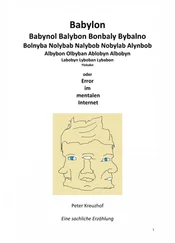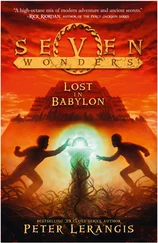He finishes his drink, washes his member and brushes his teeth. He turns off the light and calmly lies down next to Wanda the Trucker’s long body with the feeling that, despite everything, he’s completed a useful bit of work today.
* * *
The hotel lawyer no longer visits the manager. He’s avoided him ever since he realised that contact with the manager might endanger him. He’s working out how to become the new manager. The current one will soon go mad and hang himself. Or freeze to death. Or die of starvation. The lawyer considers the hotel a lucrative place to be. His tactics are to feign loyalty to the stoker and to try to be inconspicuous. He is succeeding; Rácz is not in the least interested in him, since he never sees him. There’s a simple explanation: usually the lawyer comes to the hotel early in the morning and soon drives off to do his deals. These are dirty deals, but not like Rácz’s deals. The lawyer is not interested in currency deals or trading gold or smuggled goods. He specializes in complex transactions involving accounting documents, phony acquisitions of antique furniture, expensive carpets, electronics, and even food for the hotel. It is all fake. Non-existent furniture and installations are sold off at a residual value. The lawyer pockets the difference between purchase and sale price. The Renault minibus is parked in the hotel garage. But there were originally supposed to be three minibuses there. After a while, the two non-existent ones were sold at a write-off price. The lawyer keeps tight control over everything; even the commercial assistant manager only exists on paper. He does not exist in reality. He simply doesn’t exist. His name would be Haluška, a forty-year-old divorced business studies graduate on a good salary. No such person exists in reality. The entire administrative section of the hotel is empty. The lawyer, the personnel manager and, for the time being, the manager are the only actual living staff. The others live only on paper and in the lawyer’s imagination. But they do get paid. That is why the lawyer couldn’t even think of officially accounting for the stoker. He’d have to account for himself as well. Attracting too much attention is harmful. Rácz can only be intimidated. But the lawyer is not altogether certain if anything would intimidate this savage who is now king of the hotel. Everybody is afraid of Rácz, but he’s afraid of no one. Yes, the lawyer knows that the stoker could only be tamed if a couple of undercover policemen came to investigate his dealings. But that would result in a disaster for the lawyer, too. They’re both in the same boat.
That is why the lawyer comes in to work on his paper frauds, to share the salaries of the non-existent hotel employees with the assistant manager, and tries to keep a low profile. He knows that one day his time will come.
* * *
Mozoň (alias Silent) is content and in a good mood. His booming voice resounds through the rooms of the villa, which is a safe house. When he sees the amount of money Šolik (alias Livid) and Tupý (alias Bear) have brought him, he is completely stupefied for a minute. He’s never seen so much money in his life. This money will enable them to live in the safe house for several more months. And by then things will be sorted out, the abolition of State Security will be annulled and Mozoň (alias Silent) and his underlings will be back on active duty.
“Where did you get all this money?” he asks Tupý (Bear).
Tupý (Bear) stops counting the pile of banknotes on the table. “Your idea to use the police warrant cards was brilliant.”
Mozoň (Silent) contentedly preens himself. “I told you,” he says. “And this is just the start!” He waves his fist menacingly at the window, which is covered, for secrecy, by a heavy curtain. “They haven’t heard the last of us! We’re going not just to make money, but get recognition for all we’ve done! When this democracy is laid to rest, we, the working people, will be in power again!”
“The labouring classes!” adds Tupý.
“Workers and peasants!” Šolik joins in. A celebratory mood fills the room. All three men have sparkling eyes.
The day the three men were sacked, it seemed like the end of the world. They all had very conventional wives who had no idea that their husbands worked for State Security. So they could not be told that State Security had been abolished. In a rare flash of intelligence, in the short period when something could still be saved, Mozoň got into the archives, found a file with a list of safe houses, flats and villas, and tore out a page. If he’d destroyed the whole file, that would soon have aroused suspicions and the new men in power would have discovered the list of apartments and houses some other way. Like this, nobody noticed anything. One villa more, or less… So Mozoň (Silent) kept for himself and his subordinates a safe place to hole up and plot their future. Every day Mozoň got up, had breakfast, got dressed and, briefcase in hand, after adjusting his tie in the mirror, unlocked the door of his apartment. He kissed his wife, who knew him as Ščepán, and left for work. His wife thought that Mozoň (Silent) alias Ščepán worked as a bank clerk. Mozoň then took a trolleybus to the safe house in a prestigious part of the town high above the city. It was so prestigious that nobody paid any attention to anyone. And you didn’t have to worry about the neighbours poking their nose in. The neighbours also valued discretion and nobody was out to rock the boat. “We haven’t done so badly,” Mozoň reflected, as he observed the old, bent, former communist bigwigs as they slowly and carefully shovelled snow away from the entrances to their manor-houses. He felt they were kindred spirits; it seemed to him that what linked them was common membership of a sort of secret fraternity or sect. “We’ll see,” he would say at such moments, shaking his fist.
Mozoň, Tupý, and Šolik spent the whole morning and most of the afternoon in the villa overlooking the city. They were bored, but it was pleasant boredom. Mozoň spent ages looking out of the window, or he locked himself in the bathroom and looked at pornographic magazines. Šolik slept on the couch with a newspaper over his face. Tupý drew up lists of people he would visit after this interlude ended. He noted in brackets following the names the tortures that he would inflict on them after arrest. He spent entire days on this and often loudly expressed his disenchantment with, and hatred of, those who’d destroyed his existence. At three thirty all three packed up, locked the villa, and went to their homes, as if returning from work. The first days and weeks were tolerable. They were all certain that in a week or two the situation would resolve itself, the guilty parties would be punished and everything would go back to normal. A month passed by slowly, and nothing happened. There was no money. Pay-day came round, but there was no pay. They realised they might have to wait longer. They’d have to think of some solution, so as not to come clean to their wives. After all, that was unthinkable, purely from an official point of view.
Mozoň came up with the idea of police warrant cards. They’d had to surrender their State Security cards when they were sacked. But all of them had still their police cards. “Look, there’s something here,” Šolik told them one day, tapping his finger impatiently on a newspaper, “about a black market flourishing around the Hotel Ambassador. Suppose we started dealing on the black market, chief?”
“What do you use for money, you idiot?” Mozoň turned on him. “We’ve got nothing. We don’t even have money.” Mozoň remembered that his wife had been asking suspiciously when his salary would be paid. He explained his plan to Šolik and Tupý. He had to tell them twice before they understood.
Читать дальше












